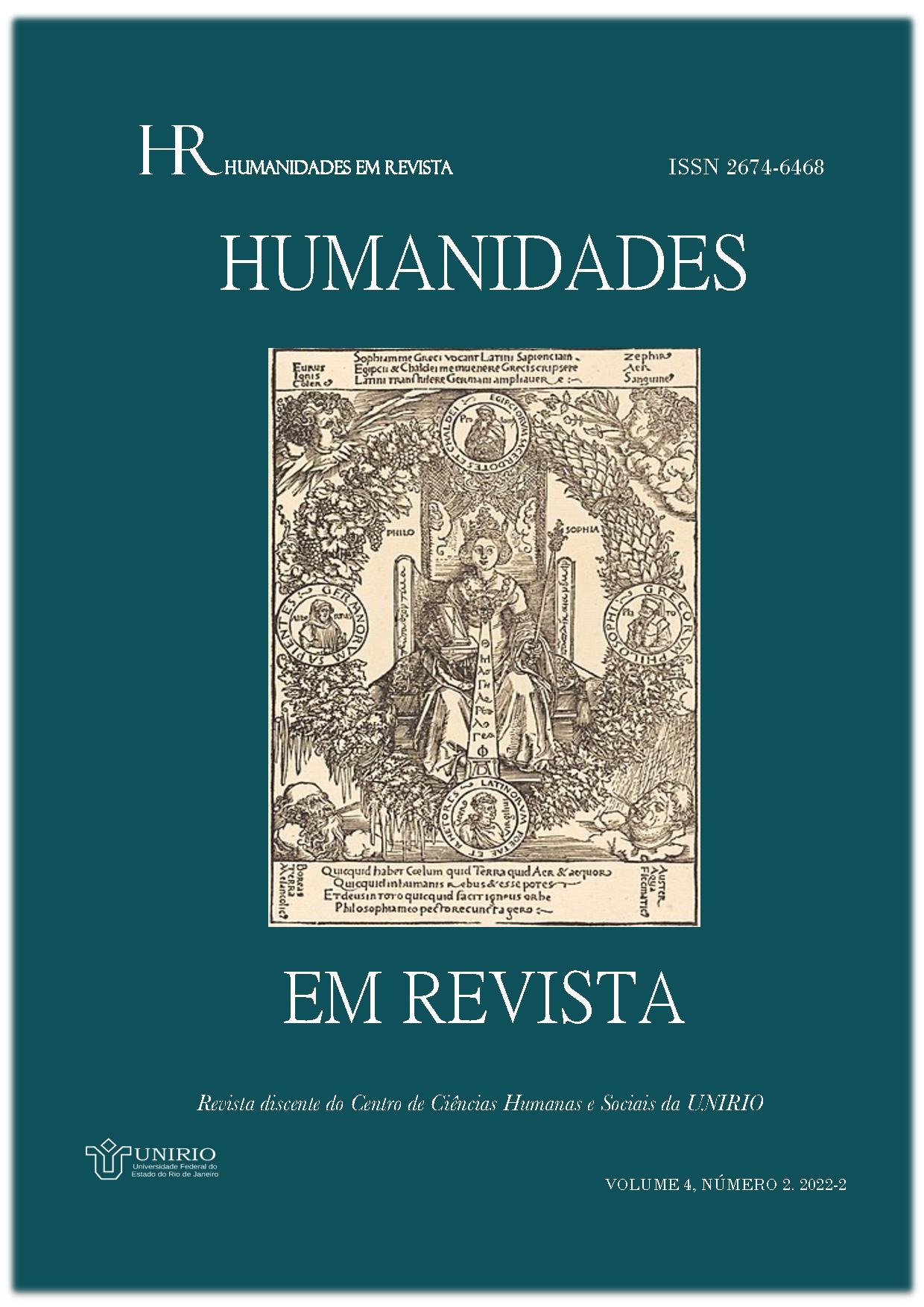O QUE ZUMBIS PODEM ENSINAR SOBRE REVOLUÇÕES
Keywords:
Revolução, Zumbis, Colonialismo, Pós-humanidadeAbstract
Science fiction, horror and fantasy have the ability to capture unique aspects of the planet's crises. Zombies, as a colonial, historical figure and also, currently, part of pop culture have their importance because they are figures that transit between life and death. But what can these monsters teach about revolution? The colonial zombie is a multipurpose monster and embodies a multitude of hopes, traumas, fears and desires. In the Haitian context, the zombie has its roots in the brutal experience of slavery and exploitation, physical deprivation and human alienation, and the environmental degradation introduced by colonial monocultures. There is also a broken dialectical model in the voodoo priest/zombie relationship. Still, films about the Haitian zombie provide criticism in the sense of works on subalternity. Thus, zombies position themselves as sub-subalterns: they are literally silent and unable to form any connection with other groups. The newer zombies have catalytic potential, are collective, a swarm, and have no individualizing history or unique personality. In series or movies, they are always representatives of otherness, to be feared or saved. They threaten nations, families and, in the literal sense, the body. So, the threat to oppressive and dominating institutions such as those mentioned can also be revolutionary. They can represent the excluded, exploited, forgotten and dehumanized who return. In this sense, the zombie means rebellion of those considered not capable of rebelling. Yet, the zombie metaphor represents non-conformity: while the human is “imprisoned” in a mortal body of flesh, the zombie resists confinement. Zombies represent the post-human and, literally, the post-(death) human. The post-human subject has its potential in collectivity, multiplicity and hybridity. It is in the lack of individuality, so dear to consumerism, that the zombie model proves that the inauguration of post-humanity can only happen with the end of capitalism. The figure of the zombie can, therefore, help to understand revolutions: collectivity, representation, identity, rebellion, non-confinement, multiplicity and hybridity. It is in the non-conformity with life or death, subject or object, master or slave that the zombie represents possibilities of revolution. Working with texts such as those by Césaire, Said, Fanon, Haraway, Spivak, Bishop, Cohen, Lauro and Embry, this work intends to demonstrate through various biases how zombies can be a metaphorical representation of the post-human and post-capitalist future desired by the progressive and revolutionary society.
Downloads
Downloads
Published
How to Cite
Issue
Section
License
Copyright (c) 2024 Stefany Sohn

This work is licensed under a Creative Commons Attribution-NonCommercial-NoDerivatives 4.0 International License.
Os direitos autorais de qualquer trabalho publicado na Revista pertencerão aos autores. Não haverá qualquer pagamento pela publicação na Revista e a aceitação dos originais implicará na aceitação das condições descritas nas informações sobre a revista constantes do escopo e de todas as regras apresentadas, assim como o respeito à legislação e às normas vigentes concernentes a publicações. A UNIRIO e seus entes subordinados não se responsabilizarão por quaisquer equívocos, questões e contendas entre autores, participantes e/ou entes institucionais que sobrevenham às publicações. O e-mail do autor será disponibilizado no trabalho.
A revista oferece acesso livre imediato ao seu conteúdo, seguindo o princípio de que disponibilizar gratuitamente o conhecimento científico ao público proporciona maior democratização mundial do conhecimento, sempre dentro dos limites da legislação de direito de autor e de direitos conexos. É adotada a licença Crative Commons do tipo “Atribuição-Não Comercial-Sem Derivações 4.0 Internacional (CC BY-NC-ND 4.0)”, acessível em: https://creativecommons.org/licenses/by-nc-nd/4.0/legalcode.pt , segundo a qual, em linhas gerais, é permitindo fazer o download dos trabalhos e o seu compartilhamento para fins educacionais, desde que sejam atribuídos os créditos a seus autores, citando também o repositório dos trabalhos, e sem que se possa alterar o material de nenhuma forma ou utilizá-lo para fins comerciais.





 Qualis/CAPES 2017- 2020 B4
Qualis/CAPES 2017- 2020 B4 Diretório das revistas científicas eletrônicas brasileiras
Diretório das revistas científicas eletrônicas brasileiras




